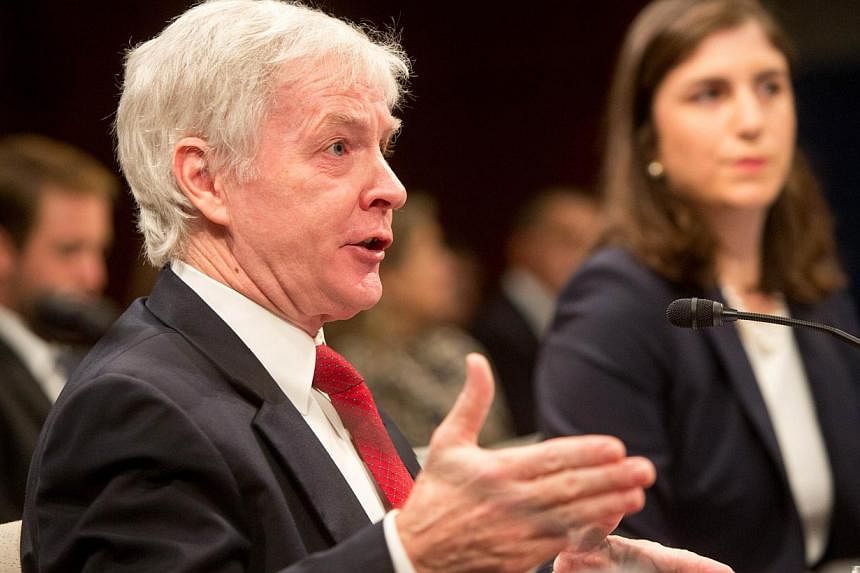WASHINGTON (AFP) - Veteran military and diplomatic officials urged the US administration on Thursday to keep all options on the table to fight Islamic militants, warning it would be a long, hard battle.
"I think we're up against in ISIL a very formidable and yet vulnerable enemy," former top military commander General James Mattis said, referring to the Islamic State group which is terrorising parts of Iraq and Syria.
"It's going to be a long-term fight, and an era of skirmishing over many years... it's not going to be over in one year or two years," he said.
General Mattis, the former commander of the US Central Command, was joined by the former ambassador to Iraq, Ryan Crocker, to be quizzed by lawmakers a day after the House of Representatives voted to approve President Barack Obama's plan to equip and train Syrian rebels to fight the jihadists.
Mr Obama has insisted there will be no US troops on the ground in Iraq or Syria to fight the Islamic State group, which has captured large swathes of territory in both countries.
While the US has sent in military advisers to Iraq to help defeat the militants, in Syria the plan is to beef up moderate Syrian rebels, already battling Syrian President Bashar al-Assad, to fight Islamic State militants.
But General Mattis argued the vow not to send in US troops was a mistake, saying you should not "tell your adversary in advance what you are not going to do."
As the US moves to build a coalition of nations to fight the militants - already said to number about 50 countries - General Mattis said the US should lead from the front.
"The fewer restrictions we place on own ourselves going into this, the more apt we are to see other nations give their full measure," he told the House select intelligence committee.
As commander-in-chief, it would be up to Mr Obama to decide when the US military should be deployed, but it would "send a reassuring note to the coalition... that on the military side we're all in," General Mattis said.
"I'm not saying you have to commit them right now, but certainly on the military side don't pull them off the table," he added.
Mr Crocker, who has also served in tough diplomatic posts such as Kabul and Beirut, agreed, pointing to other countries such as Yemen, Somalia and Afghanistan "where we face Al-Qaeda franchises".
He said that while Al-Qaeda may be weakened, it remains a threat and urged "maximum flexibility" in the fight against the extremists.
"A phased approach to this current campaign is probably the right one. Don't take anything off the table... but don't put everything in the field up front either," Mr Crocker said.
The US estimates that the Islamic State group has between 20,000 and 31,000 fighters, including many foreigners. But General Mattis said it was made vulnerable as it was now trying to hold onto territory.
While the group's brutality may have attracted some followers, it was also drawing allies to the US-led coalition.

